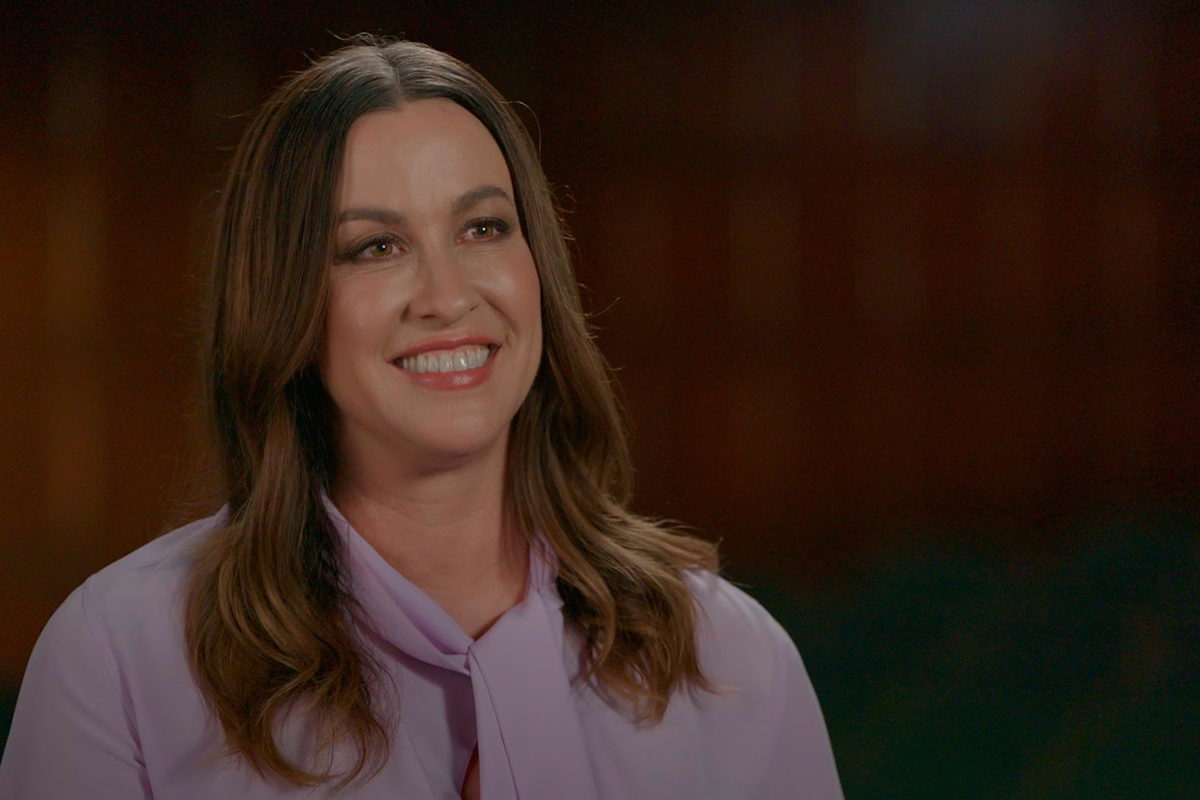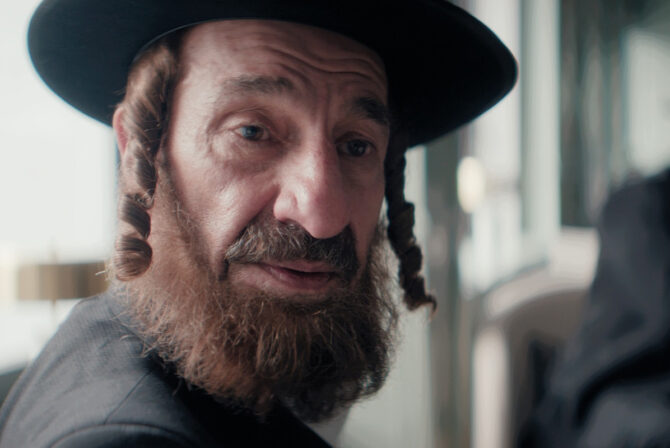My angsty teenage years have been completely reframed this week when I discovered, through a new episode of the PBS show “Finding Your Roots,” that singer-songwriter Alanis Morissette is Jewish.
Suddenly, “You Oughta Know” feels imbued with a little subversive dose of Jewish guilt, “Thank U” feels a little more like the Modeh Ani prayer and “You Learn” is imbued with Talmudic wisdom. And the fact that the musician played God in the cult classics “Dogma” and “Jay and Silent Bob Strike Back”? Much to ponder.
If you too are surprised to find out that Alanis is Jewish, well, you’re probably no more shocked than she was when she discovered it for the first time at the fairly late age of 28.
Morissette, whose last name comes from her Canadian father whose roots in Canada are centuries old, reveals on the show that she understood why her mother, Georgia, kept her Jewish heritage a secret.
“I think there was a terror that was in their bones… just not wanting antisemitism. So they were doing it to protect us, to keep us in the dark,” Morissette tells host Henry Louis Gates Jr.
Morissette’s mother Georgia Feuerstein was born in Hungary to Imre and Nadinia Feuerstein, Holocaust survivors who covered up their Jewishness.
In the episode, Gates talks about the persecution of Jews in Hungary, which dates back to the Middle Ages but became much worse during World War II and the rise of Nazism. The two brothers of Imre, Gyorgy and Sandor, were sent to “work battalions,” basically labor camps. Gates described these camps as being lice-infested and full of brutality, and where the conditions killed the laborers one by one.
“It’s unfathomable for me,” Morissette remarks in horror.
While Imre avoided that fate, he didn’t know what befell on his brothers, and even made inquiries with the Red Cross about them. Gates and the “Finding Your Roots” team were able to uncover some information about how they were killed, through a testimony submitted to Yad Vashem, the Holocaust museum in Israel.
According to Vera Covesi, who knew Gyorgy and Sandor through her brother-in-law, the two died in the “slave labor army sent to Russia.” When asked about it, Morissette said to Gates that while she never knew those stories, she will tell them to her children one day.
Imre, his wife and his daughter survived the war, but the tough times under Soviet rule led them to escape under threat of gunfire, finally making their way to Canada. Imre managed to get his wife, child and members of his extended family safely resettled in Ottawa, where Morissette grew up.
Imre survived the worst of horrors, but unfortunately, his granddaughter Alanis never really got to know him. When she was 3 months old, he was killed in a car crash.
In the episode, while reading a news clipping about the deadly event which killed both Imre and his mother-in-law, and left Nadinia injured, Morissette starts tearing up. When asked how her mother survived that tragedy, Morissette replies, “I honestly think that a beautiful disassociation muscle kicked in for her,” allowing her to take care of her children and go back to work. Georgia never agreed to speak with her daughter about the crash, but her grandmother, Nadinia, after being pressed with many questions, did end up sharing those details.
That wasn’t all the history that the show’s team uncovered. In a Ukrainian archive, they found a document that traces Morissette’s Jewish lineage back over two centuries. A death record of her great-great-grandfather, Izrael Blumenkraz, traces her family to the town of Drohobycz, once a part of Galicia in the Austrian empire, and now a part of modern day Ukraine, where Blumenkraz’s parents Isaac and Freuda lived all the way back in the early 1800s. As a fan, I’m also happy to say that I feel even more connected to Morissette because of that fact — my own great-grandparents lived in Drohobycz. I’m proud to welcome Alanis to the Galitzianer Jewish “family.”
“I had no idea how super Jewish I am,” Morissette shares in wonder after learning all those details, her face brightening up with a huge smile.
When asked how that changes her perception of herself, she answers: “I feel welcomed into a community that I’ve always had a crush on. I’ve always had a crush on Judaism. I would just show up at Passover, at seder.” (Back in December, Morissette shared that she recently started incorporating Hanukkah into her family’s holiday traditions.)
Now, she finally understands why — it was a call from her ancestors, beckoning her to “come home,” she said.
We’re so glad you’re home with us, Alanis. Consider this an open invitation to all our Jewish holiday celebrations, especially if you want to sing some holiday tunes with us.








